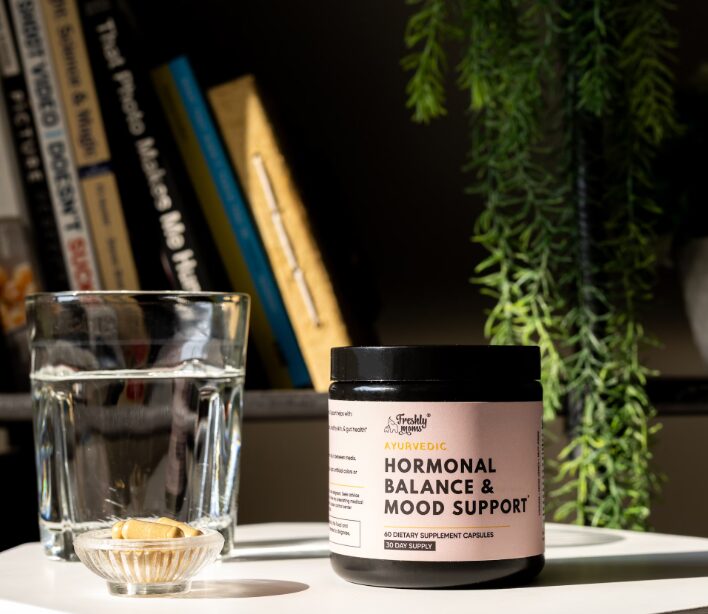Hormones are chemical messengers that travel through your bloodstream, coordinating complex processes such as metabolism, growth, reproduction, mood, and energy levels. When your hormonal system is in balance, you feel energized, focused, and healthy. However, when hormones fluctuate beyond their optimal ranges, you may experience a wide array of symptoms—from fatigue and weight gain to mood swings and skin changes. Understanding how hormones work, recognizing signs of imbalance, and adopting lifestyle and medical strategies to restore equilibrium are essential steps toward long‑term well‑being. This comprehensive guide (approximately 1,600 words) will explore key hormones, common causes of imbalance, practical management tips, and when to seek professional care.
1. The Major Hormones and Their Roles
1.1 Insulin
Produced by the pancreas, insulin regulates blood sugar by facilitating glucose uptake into cells. Chronic insulin resistance leads to elevated blood sugar, weight gain, and type 2 diabetes.
1.2 Cortisol
Known as the “stress hormone,” cortisol is secreted by the adrenal glands in response to stress and low blood sugar. It mobilizes energy stores but, in excess, can impair immune function, disrupt sleep, and promote abdominal fat accumulation.
1.3 Thyroid Hormones (T3 and T4)
The thyroid gland produces triiodothyronine (T3) and thyroxine (T4), which control metabolic rate, heart function, and body temperature. Hypothyroidism (low thyroid function) causes fatigue, weight gain, and cold intolerance; hyperthyroidism (overactive thyroid) leads to weight loss, anxiety, and heat intolerance.
1.4 Sex Hormones (Estrogen, Progesterone, Testosterone)
- Estrogen and Progesterone regulate the menstrual cycle, bone health, and cardiovascular function in women. Imbalances can result in irregular periods, PMS, and menopausal symptoms.
- Testosterone, present in both sexes (higher in men), supports muscle mass, libido, and mood. Low testosterone can cause fatigue, reduced sex drive, and muscle loss.
1.5 Leptin and Ghrelin
Leptin (produced by fat cells) signals fullness, while ghrelin (produced in the stomach) triggers hunger. Dysregulation can lead to overeating, weight gain, and metabolic syndrome.
1.6 Melatonin
Secreted by the pineal gland, melatonin regulates sleep‑wake cycles. Poor sleep habits or light exposure at night can suppress melatonin, causing insomnia and circadian disruption.
2. Common Causes of Hormonal Imbalance
2.1 Chronic Stress
Prolonged stress elevates cortisol, which can suppress thyroid function, disrupt insulin sensitivity, and lower reproductive hormones.
2.2 Poor Diet
High intake of refined sugars and processed foods spikes insulin and can lead to insulin resistance. Inadequate healthy fats impairs sex hormone synthesis, and nutrient deficiencies (iodine, selenium, vitamin D) can affect thyroid and adrenal health.
2.3 Sedentary Lifestyle
Lack of exercise contributes to insulin resistance, weight gain, and poor cortisol regulation. Physical activity improves insulin sensitivity and supports healthy hormone production.
2.4 Environmental Toxins
Endocrine‑disrupting chemicals (EDCs) found in plastics (BPA), pesticides, and personal‑care products can mimic or block natural hormones, contributing to thyroid dysfunction, reproductive issues, and metabolic disorders.
2.5 Sleep Deprivation
Insufficient or poor‑quality sleep lowers melatonin, disrupts cortisol rhythms, and can increase ghrelin while reducing leptin, leading to weight gain and metabolic dysregulation.
2.6 Aging and Life Stage Transitions
- Puberty brings surges of sex hormones that can trigger acne and mood swings.
- Perimenopause and Menopause involve declining estrogen and progesterone, causing hot flashes, mood changes, and bone density loss.
- Andropause (male midlife) features gradual testosterone decline, affecting energy and libido.
3. Recognizing the Signs and Symptoms
Because hormones influence multiple body systems, imbalances can manifest in diverse ways. Here are key red‑flag symptoms to watch for:
- Energy and Weight: Unexplained fatigue, difficulty losing weight, or sudden weight gain (especially around the abdomen).
- Mood and Cognition: Anxiety, depression, irritability, brain fog, or memory lapses.
- Reproductive Health: Irregular periods, heavy or painful menstruation, PMS, low libido, erectile dysfunction, or infertility.
- Sleep Disturbances: Insomnia, difficulty falling asleep, frequent night awakenings, or waking unrefreshed.
- Skin and Hair: Adult acne, dry skin, hair thinning or loss, or excessive facial/body hair (hirsutism).
- Digestive Issues: Bloating, constipation, or food intolerances linked to fluctuating gut‑hormone interactions.
- Temperature Sensitivity: Feeling too hot or too cold compared to others.
If you experience multiple symptoms that affect daily life, consider evaluating your hormonal health.
4. Lifestyle Strategies to Balance Hormones
4.1 Nutrition for Hormonal Harmony
- Stabilize Blood Sugar: Focus on low‑glycemic index carbohydrates (vegetables, legumes, whole grains) paired with protein and healthy fats at each meal to prevent insulin spikes.
- Include Healthy Fats: Omega‑3 fatty acids (fatty fish, flaxseed, walnuts) support anti‑inflammatory pathways and hormone synthesis. Monounsaturated fats (olive oil, avocados) aid cell‑membrane health.
- Eat Phytoestrogens in Moderation: Foods like flaxseed, soy, and legumes contain plant estrogens that can modulate estrogen levels, beneficial during menopause but potentially problematic in excess.
- Balance Iodine and Selenium: Seafood, seaweed, Brazil nuts, and whole grains support thyroid hormone production and conversion.
- Limit Processed Foods and Added Sugars: These contribute to insulin resistance and systemic inflammation.
4.2 Regular Physical Activity
- Aerobic Exercise: Brisk walking, cycling, or swimming for 150 minutes per week improves insulin sensitivity and reduces cortisol.
- Strength Training: Two to three sessions per week preserve muscle mass, boost testosterone, and support metabolic rate.
- Mind‑Body Practices: Yoga, Pilates, and tai chi lower cortisol, enhance parasympathetic activation, and improve sleep quality.
4.3 Stress Management
- Mindfulness Meditation: Daily 10–20 minutes of mindfulness practice lowers cortisol and promotes emotional regulation.
- Breathing Techniques: Box breathing or diaphragmatic breathing can be done anywhere to quickly reduce stress.
- Social Connection: Regular time with friends and loved ones buffers stress responses and supports healthy oxytocin release.
4.4 Sleep Optimization
- Consistent Schedule: Go to bed and wake up at the same times, even on weekends, to stabilize circadian rhythms.
- Bedroom Environment: Keep the room cool (16–18 °C), dark (use blackout curtains), and quiet (white‑noise machine if needed).
- Digital Detox: Avoid screens at least 60 minutes before bed; blue‑light blocking glasses can help if device use is unavoidable.
- Pre‑Sleep Ritual: A warm bath, light stretching, or reading a physical book signals the body to wind down.
4.5 Environmental Detoxification
- Reduce Plastic Use: Swap plastic containers for glass or stainless steel, especially for hot foods and beverages.
- Choose Clean Personal‑Care Products: Look for phthalate‑ and paraben‑free labels in cosmetics and toiletries.
- Filter Tap Water: Use a high‑quality water filter to remove potential EDCs and heavy metals.
- Increase Indoor Plants: Certain houseplants (e.g., spider plants, peace lilies) can help filter volatile organic compounds (VOCs) from indoor air.
5. Supplements and Nutraceuticals
While whole foods should be the primary source of nutrients, certain supplements can support hormone health when used judiciously:
- Magnesium: 200–400 mg nightly can improve sleep, reduce cortisol, and support insulin sensitivity.
- Vitamin D: 2,000–5,000 IU daily (adjust based on blood levels) supports immune function, mood regulation, and hormone receptor sensitivity.
- Adaptogenic Herbs: Ashwagandha, rhodiola, and holy basil can modulate stress responses, lower cortisol, and enhance thyroid function.
- Omega‑3 Fish Oil: 1–2 g of combined EPA and DHA daily reduces inflammation and supports mood.
- Probiotics: Strains like Lactobacillus rhamnosus and Bifidobacterium longum can improve gut health and indirectly influence hormones like cortisol and estrogen through the gut‑brain axis.
- B‑Complex Vitamins: Support energy production, neurotransmitter synthesis, and methylation processes essential for hormone metabolism.
Always consult a healthcare professional before beginning any supplement regimen, particularly if you have preexisting conditions or take medications.
6. Medical Evaluation and Treatment Options
When lifestyle modifications aren’t sufficient, professional evaluation can identify specific imbalances and guide targeted interventions:
6.1 Hormone Testing
- Blood Panels: Measure fasting insulin, thyroid‑stimulating hormone (TSH), free T3/T4, cortisol (morning and evening), sex hormones (estradiol, progesterone, testosterone), and vitamin D.
- Saliva Tests: Useful for assessing diurnal cortisol patterns and bioavailable sex hormones.
- Urine Metabolites: Offer insights into hormone metabolism and detoxification pathways.
6.2 Prescription Therapies
- Thyroid Hormone Replacement: Levothyroxine or liothyronine for hypothyroidism; antithyroid drugs or beta‑blockers for hyperthyroidism.
- Bioidentical Hormone Replacement Therapy (BHRT): Compounded estrogen, progesterone, or testosterone tailored to individual needs, often used for perimenopausal and menopausal symptom relief.
- Oral Contraceptives: Can regulate menstrual cycles, reduce androgen levels, and alleviate severe PMS or PCOS symptoms.
- Metformin: Improves insulin sensitivity in polycystic ovary syndrome (PCOS) and prediabetes.
- Glucocorticoid Modulators: Low‑dose hydrocortisone or cortisol‑modulating agents for adrenal insufficiency or dysregulation under specialist supervision.
6.3 Integrative and Functional Medicine Approaches
- Personalized Nutrition Plans: Based on genetic testing, microbiome analysis, and metabolic profiling.
- Detoxification Protocols: Liver‑supportive botanicals (milk thistle, dandelion root) and sauna therapy to enhance hormone clearance.
- Mind‑Body Medicine: Incorporation of cognitive behavioral therapy (CBT), biofeedback, and guided imagery to address stress‑related hormone dysregulation.
7. Tracking Progress and Adjusting Strategies
Maintaining a hormone‑friendly lifestyle requires ongoing attention and adaptation:
- Symptom Journal: Record daily energy levels, mood, sleep quality, menstrual symptoms, and dietary intake to identify patterns and triggers.
- Periodic Testing: Reassess key hormone levels every 3–6 months when initiating new treatments or lifestyle changes.
- Regular Medical Follow‑Up: Work with your healthcare team to tweak therapies, address side effects, and ensure safe, effective management.
- Flexible Goal‑Setting: Adjust fitness routines, stress‑management techniques, and dietary plans seasonally or as life demands change.
8. Special Considerations for Women and Men
8.1 Women’s Hormonal Health
- Perimenopause: Expect fluctuating estrogen and progesterone; track symptoms like hot flashes, mood swings, and sleep disturbances. Consider BHRT or nonhormonal options (SSRIs, gabapentin) for severe symptoms.
- Polycystic Ovary Syndrome (PCOS): Characterized by hyperandrogenism, insulin resistance, and irregular cycles. Lifestyle interventions (low‑GI diet, strength training) combined with metformin or hormonal contraceptives can restore balance.
- Menstrual Cycle Syncing: Tailor exercise and nutrition to cycle phases—higher‑intensity workouts in the follicular phase, gentle movement and increased iron intake during menstruation.
8.2 Men’s Hormonal Health
- Testosterone Decline: Monitor symptoms like low libido, fatigue, and muscle loss. Resistance training, healthy weight maintenance, and stress reduction support natural testosterone production. BHRT may be considered under specialist care.
- Prostate Health: Balanced estrogen and testosterone levels, along with adequate lycopene (tomatoes) and zinc intake, support prostate function. Regular screenings are crucial after age 50.
9. The Mind‑Body Connection
Hormones not only influence physical processes but also shape thoughts, emotions, and behaviors. Practices that integrate mind and body can amplify hormonal benefits:
- Yoga and Qigong: Promote parasympathetic activation, reduce cortisol, and improve insulin sensitivity. Specific poses (forward folds, inversions) may stimulate the thyroid and adrenal glands.
- Meditation and Guided Imagery: Lower stress hormones, enhance melatonin production, and support balanced sex hormones.
- Breathwork (Pranayama): Techniques like alternate‑nostril breathing can modulate the autonomic nervous system, improving heart rate variability and hormonal resilience.
10. Building a Sustainable Hormonal Health Plan
Balancing hormones is a dynamic, individualized journey. To create a sustainable plan:
- Educate Yourself: Understand your unique hormonal profile through reputable sources and professional guidance.
- Set Realistic Goals: Focus on incremental changes—one new habit per month—to avoid overwhelm.
- Cultivate Community: Join support groups (online or local) for shared experiences, recipes, and exercise tips.
- Celebrate Milestones: Recognize improvements in energy, mood, or cycle regularity as wins that reinforce healthy behaviors.
- Maintain Flexibility: Life stages, seasons, and stressors will ebb and flow; adapt your plan rather than seeking perfection.
Conclusion
Hormones orchestrate the symphony of your body’s functions, and even subtle imbalances can ripple across multiple systems—affecting energy, mood, metabolism, and beyond. By understanding the major hormonal players, recognizing the signs of imbalance, and implementing targeted lifestyle, nutritional, and medical strategies, you can regain equilibrium and thrive. Remember that hormonal health is not a one‑time fix but an ongoing practice of self‑awareness, adaptation, and collaboration with knowledgeable healthcare providers. With patience, persistence, and a personalized approach, you can harmonize your hormonal rhythms and enjoy vibrant health at every life stage.



